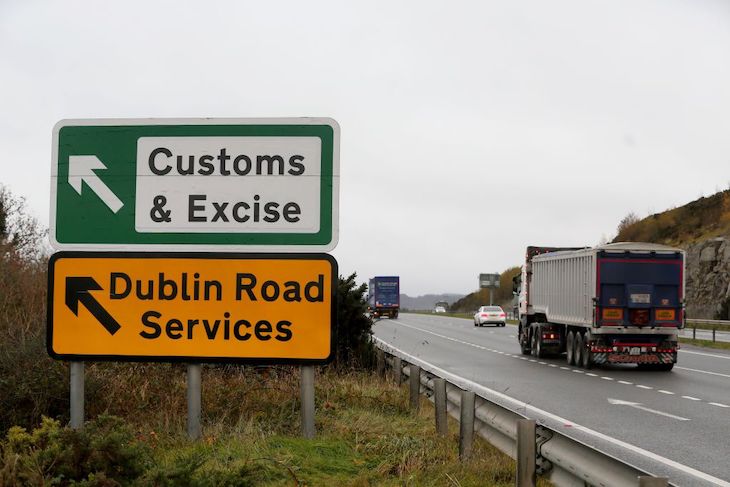Has the time come to hold a referendum on Irish unity? The best way for the UK to leave the EU would be via a Canada-style free trade agreement, an option that was offered by the EU last year. But as things stand, the 1.8 million population of Northern Ireland is preventing the rest of the UK from leaving on the most favourable terms for both the UK and the EU27. More precisely, the section of the population represented by the Democratic Unionist Party (DUP) is blocking this mutually beneficial agreement.
The Belfast Agreement of 1998 represented a major change in strategy for the British government. It created a pathway to Irish unity. The Republic amended its constitution to recognise that Northern Ireland would remain part of the UK as long as the majority in Northern Ireland wished to do so, and the British Government agreed that if the majority in Northern Ireland wanted to become part of the Republic, it would help them. Arrangements for an all-Ireland economy and North-South cooperation were expected to smooth the path to unity, once the raw feelings from the murderous troubles were gradually diminished by the passage of time. There is a North-South Ministerial Council and regular Anglo-Irish inter-government meetings, which give the Irish government a role in policy making north of the border. Northern Ireland is already semi-detached with our full consent.
Nearly 56 per cent of the 790,000 votes cast in Northern Ireland in the 2016 EU referendum were in favour of remaining. Perhaps there would be a similar majority for Irish unity if a referendum were held. The alternative is for the DUP to support additional checks at airports and seaports in Northern Ireland. This would preserve what the EU calls the integrity of the single market and the customs union without threatening the status of Northern Ireland as part of the UK. There has been a common travel area between the Republic and the UK in some form since its separation from the UK in the 1920s. The exact arrangements have changed from time to time and, in the face of a heightened Islamist security threat, additional checks were made at airports in Northern Ireland in 2006. They did not undermine the Belfast Agreement, but they did provide a little extra protection from terrorists.
Whatever other motives the EU might have, it is perfectly reasonable for it to want to prevent smuggling, counterfeiting and illegal immigration as well as upholding animal and plant health standards. There is already considerable smuggling and counterfeiting taking place near the Irish border. Notoriously the different rates of tax on diesel fuel between the north and the south have stimulated cross-border smuggling. There is a constant tussle between the authorities and smugglers. In the North they have been adding a red dye to diesel for some time and in the south a green dye. At one point the smugglers found a way of removing the dye and so the authorities had to use a different chemical that was not so easily removed.
The border issue has become central because the DUP can bring down the government by supporting a vote of no confidence. If there was a referendum on Irish unity, perhaps the majority in Northern Ireland would vote to remain in the UK. Perhaps not. But either way the DUP should not be able to block a free trade agreement. Allowing extra checks at Northern Ireland’s seaports and airports would not make a united Ireland any more or less likely than it is now. That decision is solely in the hands of the people of Northern Ireland. But the other 64 million people in the UK should not have their futures determined by a recalcitrant minority party with a mere 10 MPs.
David G. Green is Director of Civitas






Comments